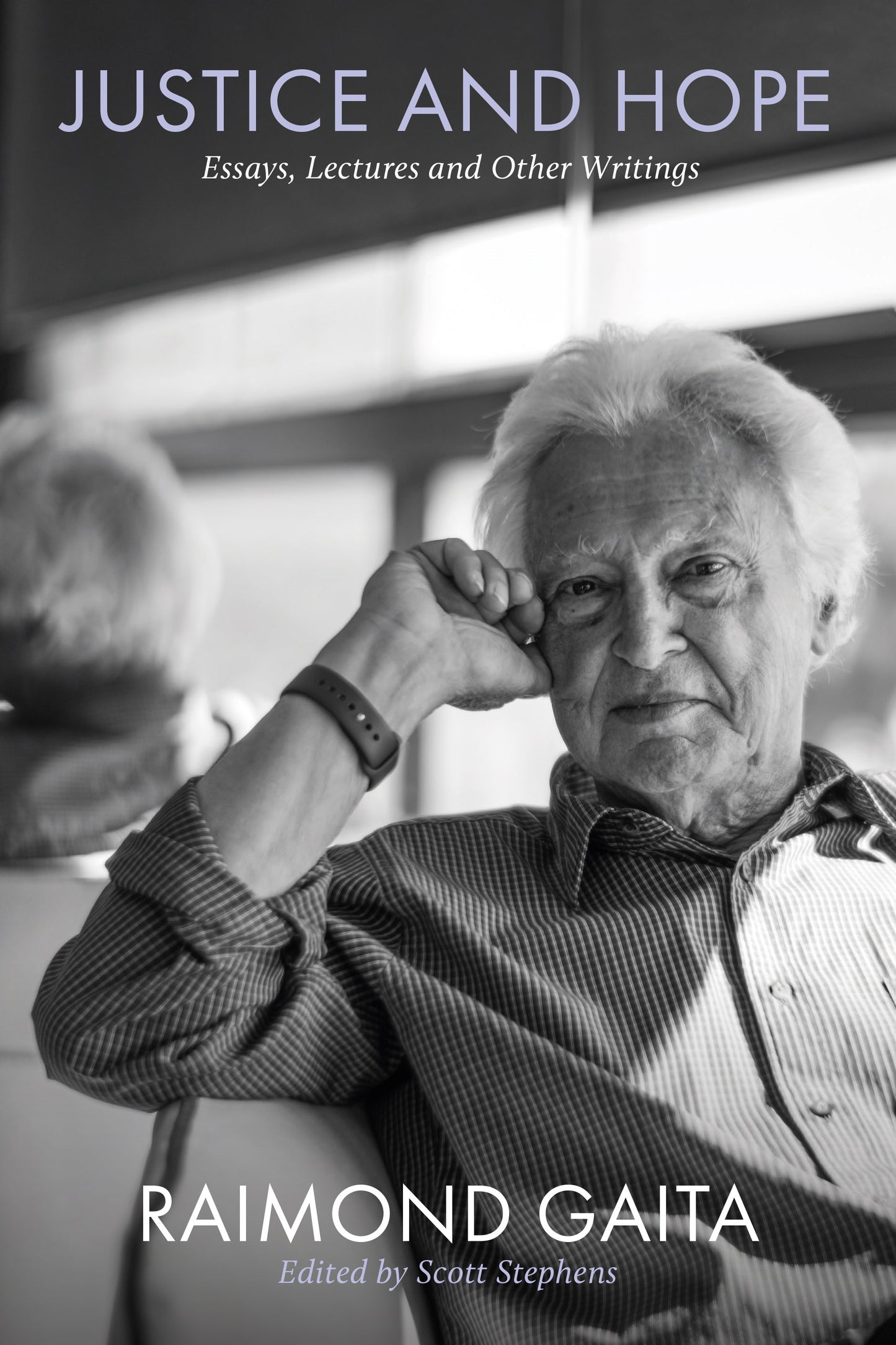Raimond Gaita
Justice And Hope
Justice And Hope
Couldn't load pickup availability
Gabi's Review
Raimond Gaita has invited us to engage in re-framing conversations for over 30 years, helping us to understand the importance of being present to all identities in the hope we see the common one. In a world of division, weaponisation of ideas, and self-promoting communication, his appeal to remember the importance of genuine dialogue is, perhaps, more pertinent than ever.
This collection of writings encourages us to confront our darkest moments, from genocide to the Australian First Peoples' dispossession, the War on Terror, Political extremism, Black Summer bushfires and COVID-19 pandemic and my favorite Affirming an Embodied Humanity. Through his rational humanist moral vision, we understand the power of loving and staying loyal to a vision of how to become our best human selves, which he suggests is our greatest source of strength to do justice.
Publishers Reviews
The collected writings of Raimond Gaita
'From where will we draw the moral energy to stay true to justice?'
For more than three decades the incomparable voice of Raimond Gaita has been summoning us to new conversations that deepen our understanding of what matters most to human life and awaken the sense of our common humanity. For Gaita, we are never more fully alive than when we are fully present to one another in conversation.
In a time when modes of communication tend to superficiality and self-promotion, when political debates are increasingly inured to lies and even violence, and the moral demands of dialogue give way to a torrent of competing monologues, Gaita's invitation to rediscover what genuine conversation requires of us could not be more timely.
These collected writings at once invite us into that conversation and enact its severe demands. Gaita asks us to confront the distinctive evil of genocide, to examine the true cost of the 'War on Terror', to interrogate what justice requires in response to Australia's dispossession of its First Peoples, to understand our need for truth in politics, especially during war, to see what is at stake in the decline of the universities, to grasp what was lost during the Black Summer bushfires, and to reckon with the experience of the COVID-19 pandemic-when we learned, he writes, 'how much we needed to touch and hold other people'.
Gaita's astonishing range of concerns is held together by the consistency and unrelenting tenderness of his moral vision. To see the world through Gaita's eyes is to discover, once again, what it means to love the world and to remain faithful to it. He tells us that an unconditional love of the world is the deepest form of hope and the truest source of our energies to honour the demands of justice. This is how we learn to be human.
Share


